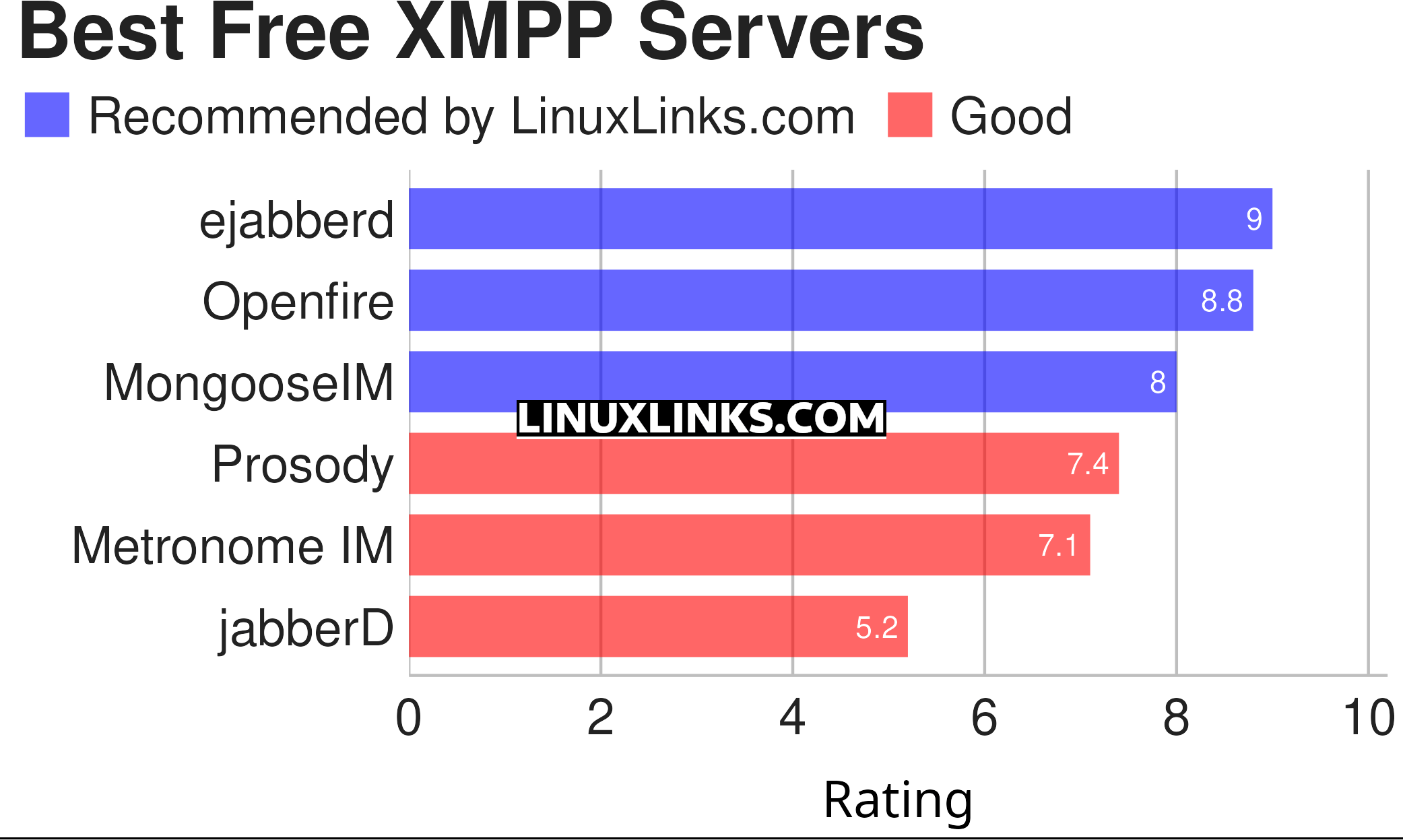XMPP (also known as Jabber) is an open and free alternative to commercial messaging and chat providers. Set it up for your company, organisation, or just your family and friends. You are in control, and your communication is private to you. Supporting a wide range of client software for desktop and mobile platforms, you can chat from any device.
You can set up your own XMPP service on your server (dedicated, VPS, etc.) or on a box on your local network, to serve your home or office. Either way you can use it to converse with anyone else on the Jabber network, including people using Google Talk, probably the largest Jabber service on the network.
XMPP was designed for real-time communication, which powers a wide range of applications including instant messaging, presence, media negotiation, whiteboarding, collaboration, lightweight middleware, content syndication, EDI, RPC and more.
Here’s our verdict captured in a legendary LinuxLinks-ratings chart. All of the software featured here is free and open source.

Click the links in the table below to learn more about each server.
| XMPP Servers | |
|---|---|
| ejabberd | XMPP application server and an MQTT broker |
| Openfire | Real time collaboration (RTC) server |
| MongooseIM | Mobile messaging platform with focus on performance and scalability |
| Prosody | Modern XMPP server that's easy to set up |
| Metronome IM | Lightweight XMPP server with advanced microblogging features |
| jabberD | Next generation of the jabberd project |
This article has been revamped in line with our recent announcement.
 Read our complete collection of recommended free and open source software. Our curated compilation covers all categories of software. Read our complete collection of recommended free and open source software. Our curated compilation covers all categories of software. Spotted a useful open source Linux program not covered on our site? Please let us know by completing this form. The software collection forms part of our series of informative articles for Linux enthusiasts. There are hundreds of in-depth reviews, open source alternatives to proprietary software from large corporations like Google, Microsoft, Apple, Adobe, IBM, Cisco, Oracle, and Autodesk. There are also fun things to try, hardware, free programming books and tutorials, and much more. |
